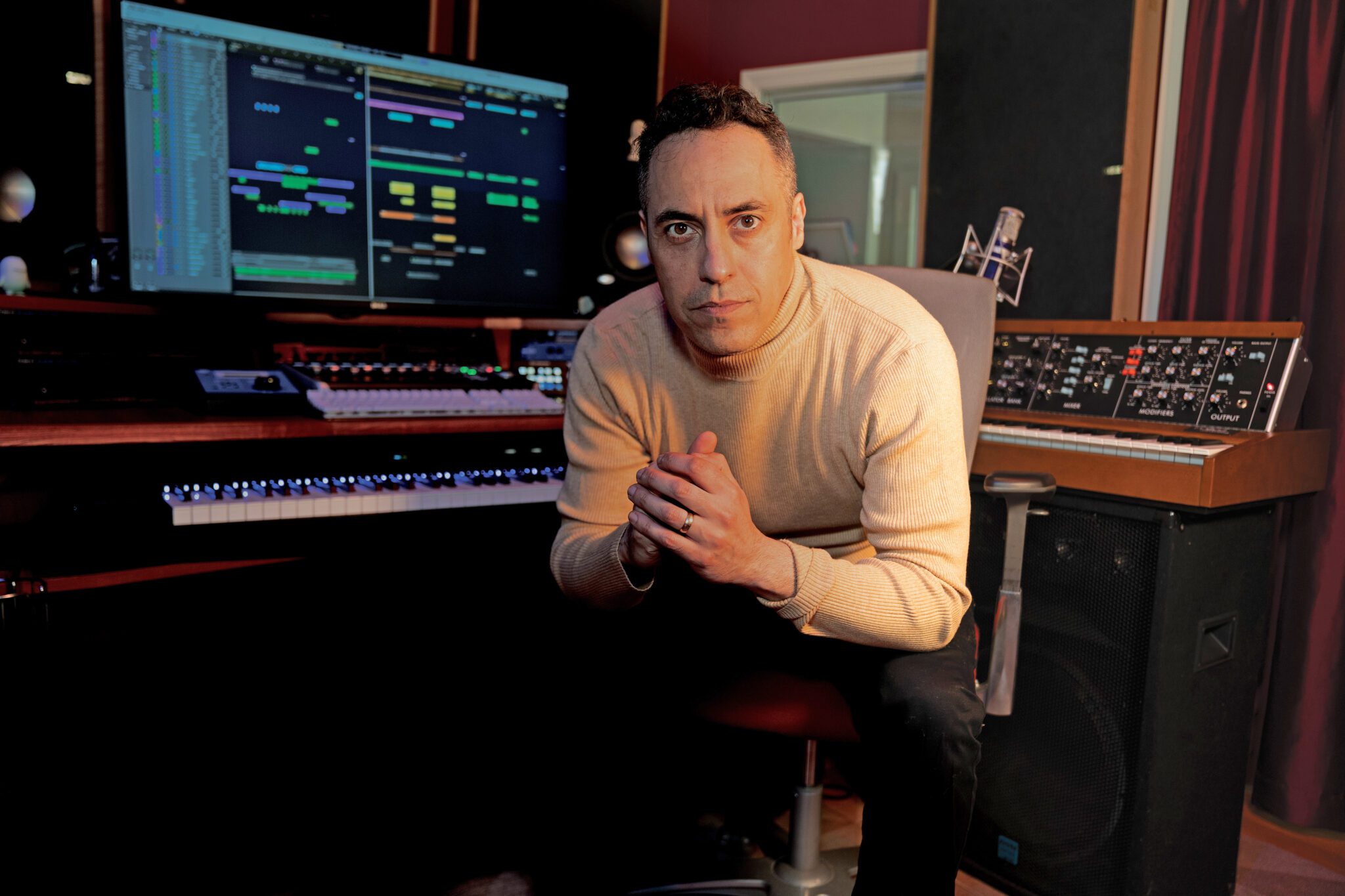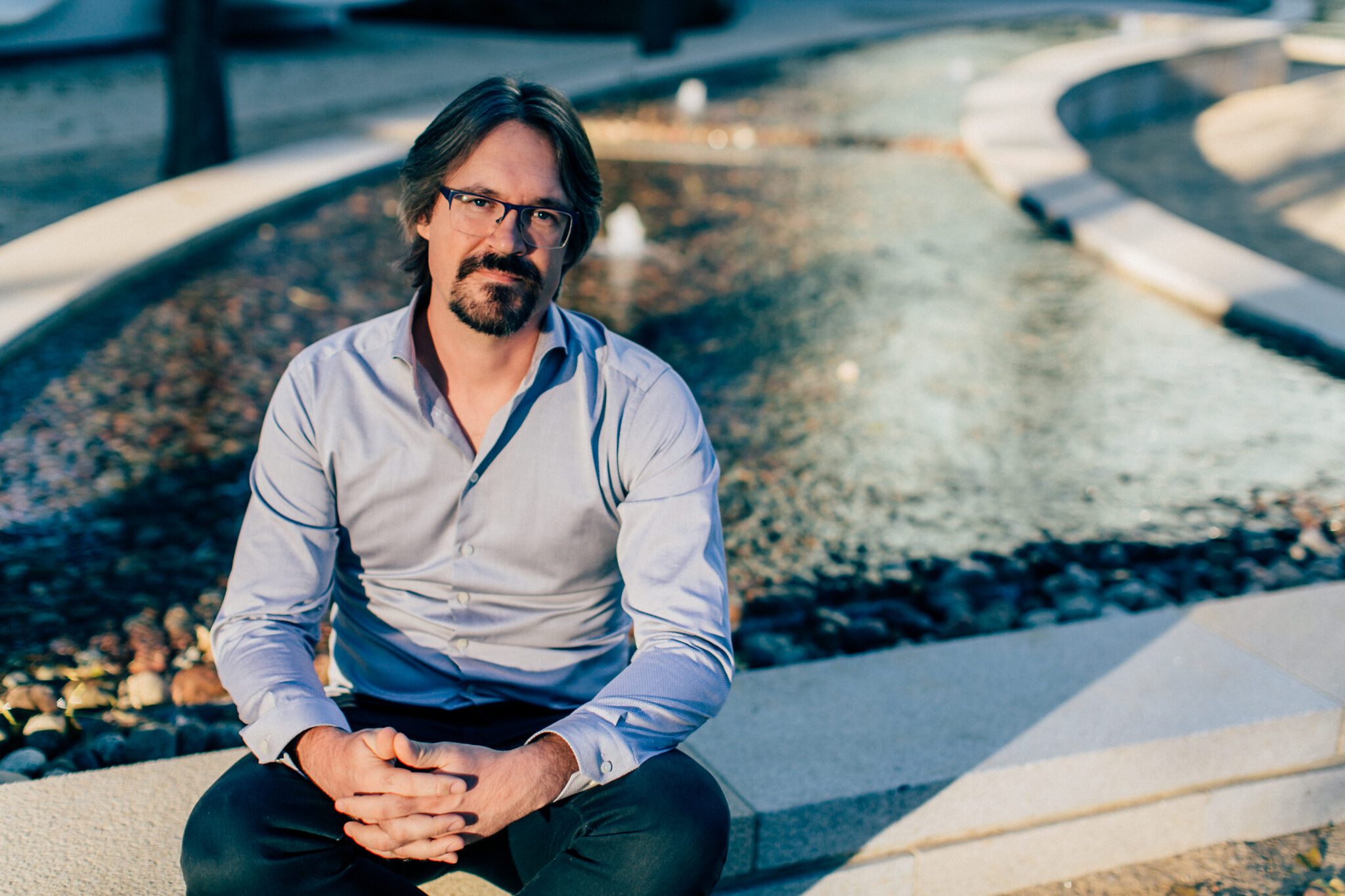Creating music for video games is becoming more and more popular. It’s no wonder, as interactive entertainment continues to evolve in unique and wondrous ways. MC chatted with five leading figures in this cutting-edge space. Their insights shed invaluable light onto one of the most exciting disciplines in the industry.
Inon Zur
Web: inonzur.com
Recent Works: Fallout, Starfield, PUBG, Fantasia: Music Evolved
What makes composing for video games a satisfying career path?
The most substantial one is the creative process. Unlike composing for film or TV, there is freedom in composing music for games, since you don’t need to be locked to any picture. That allows you to create a more traditional composition with a proper introduction and thematic material. The second thing is the fans are music enthusiasts. They are really vocal when it comes to the music. It matters for them. And to get a response from so many is satisfying.
Do you have advice for people trying to break into video game composition?
It starts from mainly two components. The first and most important is hard work. You need to bring yourself to a level that you can deliver. Train by listening, writing, and talking to people. The second thing is even more important: who you know. It all starts from somebody that trusts you. Don’t send demos to tons of people. That’s not going to get you anywhere. Find one person that you can do the job with. Almost all the people I know, including myself, started by somebody vouching for them. When you’re looking for a contractor, plumber or electrician, are you going to go to the Yellow Pages? Or are you going to ask your neighbor, “Do you know somebody?”
How do composers train their brains to create music for interactive content?
It starts from knowing music in-depth. Then, it is about the narrative. It’s about the story and message you want to tell. This is something you want to discuss with the game’s creator. How can you find something that will be the signature, the thing that everybody will tell you, “This is Starfield,” or “This is Fallout,” from the second they hear it?
What are your thoughts on the current state of the game industry? How is video game composition going to change?
Today, the biggest composers are writing music for games. Now, where it’s going, it’s all about the culture. Music is always answering the call of the people, but also sometimes seeing the future. The artistic part is going to develop by demand. Meaning, the tastes of people are changing. And if the people like [a certain] direction, then it will gravitate to this field.
However, there’s another component: A.I. For certain types of content, computers are able to do a great job. It reminds me of 25 years ago, when people asked, “Are samplers going to replace live instruments?” Samplers and electronic music definitely replaced some, but it did not replace a lot of this industry. The same thing is for A.I. Yes, it will create a new component. Will it replace the live composer? I don’t think so.
Is there anything else you want our readers to know?
I’ve been working on Starfield from 2016, so I’ve been working on that score for seven years. That shows you the amount of planning, thought, energy, and creativity being injected in one score. We take what we do seriously. It’s not about, “Here’s a picture. Let’s give it some musical framing.” It’s about telling the story on an emotional level. It’s helping elevate what gamers are experiencing.

Tom Salta
Web: tomsalta.com
Recent Works: Deathloop, Wolfenstein, The Outlast Trials, Halo
What makes composing for video games a satisfying career path?
For me, it comes from an authentic love of video games. A lot of people love film or other things. I’m a big gamer. So to spend my days [being] part of the creative process, it brings out my talents, skills, and child-like passions.
Where did your gaming life begin?
My first console was the Atari 2600 in 1981, but I was gaming before that existed. I was gaming on the Apple IIe. I remember the stand-up games in the ‘70s. If I walked into a hotel or restaurant and they had Asteroids or Space Invaders, I was in heaven.
Do you have advice for people trying to break into video game composition?
It’s about making relationships and connections. There’s something special about the video game industry. There’s a kind of camaraderie, even amongst competitors. First of all, ask yourself why. Make sure it’s an authentic desire, as opposed to falling in love with the romanticized idea of fortune and glory, which is not what it’s about. Then, surround yourself with people who are doing it. Attend conferences like GameSoundCon and Game Developers Conference [GDC]. I hope to launch one in Puerto Rico. Meet everybody, and become part of this growing industry.
How do composers train their brains to create music for interactive content?
The thing about creating music for games is it’s a balance between the analytical side and the creative side, I’d argue much more than other mediums. You have to create great music. At the same time, you have to think about the strategy. How is it going to connect to other pieces? Is it going to be a multi-layered piece? Is it going to loop? You have to consider the implementation, as opposed to linear media.
What are your thoughts on the current state of the game industry? How is video game composition going to change?
There is more and more focus on the music itself, rather than the technical limitations. I marvel at the early days. On the Nintendo 64, it’s remarkable how they were able to get it to sound so incredible with so little. There were no recordings in those games. They were all triggered MIDIs of the synth sounds or sample blocks in the cartridges. I dealt with some things like that early in my game career, but now I never have to. It’s going to free composers and audio directors to fully realize their dreams.
In a way, it’s too much choice. Developers had to create something that worked and that’s all they could focus on. Now, there’s the temptation to go down alleyways that can be dead ends.
That’s a good point. Creativity comes through limitations and setting boundaries. Think of how creative the guy who created Pac-Man was. Where do you come up with that? That said, I don’t have to compress things to the point where it harms the quality. I remember my Amiga 500. I loved the music in Shadow of the Beast, but you’d hear the dithered sound of the low sample rate. Yet having limitless possibilities is often not a good thing. Any creator should learn how to set boundaries.
Is there anything else you want to throw out there?
Another thing that attracts me to games is the pure variety. I’m working on [the DLC for] The Outlast Trials, which is an intensely scary horror game. And the last major score before that was Deathloop, which is a kind of jazzy, unique sound. I’d never done anything like that before. That’s one of the things I love the most and why I transitioned out of purely focusing on records. Video game music is so liberating. I’m doing fully finished songs for games like Just Dance. I still work in records. I still do trailers. I’m putting a stage show together right now. I do all kinds of things. It keeps the creative gears oiled.

Wilbert Roget II
Web: rogetmusic.com
Recent Works: Helldivers 2, Call of Duty: WWII, Star Wars: Outlaws, Mortal Kombat
What makes composing for video games a satisfying career path?
There’s so much diversity. Pretty much any kind of composer, regardless of genre, can find a place in game scoring. I’ve worked with musicians around the world, many of them playing the traditional instruments of Greece and the Middle East, Northern Europe, Scandinavia, Brazil… Eastern Asia, especially. It’s been great to collaborate with different musicians and solve different problems than you would on a film score.
Do you have advice for people trying to break into video game composition?
There are a lot of different avenues. The most important thing is to accumulate a friend group of people that you jive with. They’re motivated and talented. And they’re also in the industry or trying to get into the industry, from different backgrounds and disciplines but especially fellow musicians and audio professionals.
As time goes on, everyone’s career rises. It’s like a rising tide. One person’s career rising could mean your career rising. Maybe they’ll help you get your first gig. I’m friends with a sound designer. We worked together on an indie project, and eventually he was hired at LucasArts. They were looking for a music editor and he recommended me. That kind of started the AAA blockbuster side of my career. I wouldn’t have had that opportunity otherwise. The important part is that I was a real friend with him. It was a real connection, rather than just, “Here’s my business card.” It’s those connections that keep you in the minds of people in a position to hire.
How do composers train their brains to create music for interactive content?
Find a piece of music in a style you want to learn and transcribe it by ear. That trains you in not only what the composer did but also why they did it that way. This has been a style of teaching music for centuries. It’s hard at first, but you’ll get better as time goes on. The benefits will be astronomical.
Writing linear music is arithmetic. Writing for games is like algebra, sometimes calculus. There are these variables you have to take into account. The trick is to be so fluent with your style that you can at any point say, “In this section, I have to be able to extract it. Maybe I could loop it or substitute one instrument for another or abstract it into different layers.”
If the player is in a certain type of low intensity, it can still work as a piece of music with only this layer. But if the intensity increases, we add more layers. Or different pieces of music altogether, but they have a similar timing and harmonic rhythm. It comes with practice, but it’s just that style of conceptualizing music in the abstract, rather than only thinking about getting from point A to point B.
Is there any difference in composing for VR as opposed to flat games?
It depends on the project. There are some projects where the developer says, “We want to make sure everything is localized and 3D.” So the music would have to come from a radio or something that exists in world. There are some projects where they want the music to be not necessarily spacial but multi-channel, so you would have to mix it in 5.1 or whatever. Even in [Dolby] Atmos.
In Star Wars: Vader Immortal’s case, I wrote in stereo and then we up-mixed it to quad. It wasn’t a linear score, because you obviously had interactivity. But it was very scripted and not an adaptive score. At any point where the player would have some interactive bit, I would say, “This section has to be loopable.” And then it would transition into the next section and the next. I somewhat linearly scored my way through the whole game with different chunks being either a loop or a section.
What are your thoughts on the current state of the game industry? How is video game composition going to change?
We started off with the chip era and then samples came in. They were heavily compressed and that led to one kind of sound. But then on PlayStation 1, we had Red Book audio and you could have live bands, even live orchestras. From then on, the floodgates were open. You could put anything into a game. It became a matter of what kind of vibe developers were trying to bring.
And there are trends. When we went from PS2 to PS3, we started to get a lot of film composers interested in scoring for games. As a result, it became a lot about authenticity and fidelity. As we went through PS4, it was more about, “How do we get a new genre? How do we blend styles?” Death Stranding was one of my favorites on PS4. On that title, they were trying to invent a new sound. Small orchestras and string quartets became quite popular around then.
With the PS5 era, the orchestra is kind of coming back, which surprises me. I was shocked by how well-received the Helldivers 2 score was. I thought, “I love writing orchestral music. There might not be a place for it anymore, but let’s give it the old college try.” Lo and behold, it became probably the most popular thing I’ve written. We haven’t quite had a specific identity for what PlayStation 5 era music is, because everything is now acceptable.
I think the floodgates are opening even further. I hope we start embracing more diversity. I’m a huge fan of Jongnic Bontemps’s score to Redfall, because he combined traditional orchestra with hip-hop. That was brilliant.

Mikolai Stroinski
Web: mikolaistroinski.com
Recent Works: The Witcher, League of Legends, Age of Empires 4, Diablo Immortal
What makes composing for video games a satisfying career path?
From a personal view, my passion is music. I love composing and producing music. Video games, more than movies and television, gives me an opportunity to create interesting music. I’ve composed for games like The Witcher 3, Metamorphosis and recently Nobody Wants to Die. Those projects gave me this possibility of composing music I find interesting.
From a broader point of view, it’s the sense of contributing to people’s joy of playing the game, of immersing them into the world. Music makes it so much more magical. It’s that feeling that the experience of playing the game will be that much [more pleasurable] if my music works. That gives me wings to continue.
Do you have advice for people trying to break into video game composition?
My breakthrough year was 2012, and The Witcher happened 2015 or 2016. You have to agree, 2024 is way different than those days. On one hand, technology makes it easier to produce something worthy. But because of that, everybody wants to do it. Therefore, the competition is fierce.
However, there’s a place for quality content. There are a lot of people trying to cut through, but not many doing something unique, something outstanding. Now more than ever, there’s a need for that. People are hungry for something special. Detach yourself from social media, cell phones, all that noise, and continue on the art of music. Find a way of telling a story or making the experience of playing the game that much more special.
What I love about this work is it forces you to work on yourself as a human being. To climb the ladder, you have to present yourself as a worthy human being. You have to work on your people skills, character, content within yourself, what you express as a human being, not necessarily an artist. Listen to John Williams. His music is outstanding.
How do composers train their brains to create music for interactive content?
It’s about feeling the game. As a composer, you have to develop your relationship with the game and let it speak with your music. I compare it to going on a date. I guess there is a method of preparing 20 questions you’re going to ask, but the better method is to subconsciously feel the person, what her or his needs are and where you can help. You’ve got to work on feeling, in a way. And then there’s understanding how middleware works, programs like Wwise or FMOD.
What are your thoughts on the current state of the game industry? How is video game composition going to change?
Part of the problem is oversaturation of safe choices, of certain series repeating themselves. And the safe route might turn out to be not so safe, because there’s too much of the same thing. The problem is also in getting the money to produce games. Money has become more expensive to borrow.
It’s scary how many games are being thrown on the table every single day. How do you [distinguish] yourself? Being original and doing something that resonates.
Something that has and will be going on is building more interactive scores. That’s where a lot of focus is. The problem with building a more interactive score is you have to compose in a more modular way. You have to compose from those moving cells. At any given time, when the game asks the middleware to change the music, it has to change, if not instantly then almost instantly. So composers have to create modular music, but that can create something that is disjointed. It’s a challenge to compose something artistically viable in parts.

Luci Holland
Web: luciholland.com
Recent Works: Sleep Thorn, Venture’s Gauntlet VR, Fluyo
What makes composing for video games a satisfying career path?
I have always been inspired by the potential for a player to impact a game and have a different experience from somebody else. For me, that’s where music can really shine. It can really enhance the whole experience.
Are you Scottish?
Yes, I’m based in Edinburgh.
Scotland is at the forefront of technology merging with creativity.
Certainly. It’s got a vast and creative community working not just in game environments but also lots of fringe, experimental pockets. It’s really varied.
Do you have advice for people trying to break into video game composition?
A few things are key. Playing games is number one. Get to know your medium and the variety of that world. Meet people. Look for events and groups in your area, as well as online communities. Free jobs are a great way to put your craft into practice. That’s one of the things I was doing 10 years ago. It’s a great way to get to know practitioners in other fields that make games, like programmers, developers and artists. And it’s a good way to learn the terminology, techniques and processes that people use.
Also, network with relationships in mind, rather than work or career. Make friends and take a real interest in what others are making. Not only does that fulfill you creatively, but you might find some new friendships and that could lead to something in the future.
How do composers train their brains to create music for interactive content?
Stay creatively curious and up-to-date. I play lots of games and pay attention to the music, how it’s integrated into the game. I listen for techniques that surprise and interest me. I want to figure out how they’ve done that. It’s like breaking something apart and then putting it back together again.
Follow composers online and engage with what they have to say. It’s also important to flex your compositional muscles. I listen to a vast array of musical styles, find what excites me creatively, and use those as inspirations in my own music.
I’m constantly trying new things, both in and outside games music. For example, I dabble in interactive audio-visual installations. I might use creative technology like microcontrollers and sensors to invite people into interesting sonic experiences.
What are your thoughts on the current state of the game industry? How is video game composition going to change?
Music is becoming more and more integral to games. What tends to be a barrier are the studio’s restrictions—how much time, budget or space they have.
I’ve worked in the indie space more than anything. More and more, I’m being brought on early in the process. Developers are going to their potential funders or publishers and saying, “Not only do we have this working demo with concept art and narrative journey, but we also have these key musical moments.” So they can translate the atmosphere more easily.
Recently, I heard some amazing talks, including one by Jakob Schmid. He worked on Cocoon and did an in-depth analysis of the real-time synthesis that he used to generate most of the music.
Contact Greg O’Connor-Read
greg@topdollarpr.com














